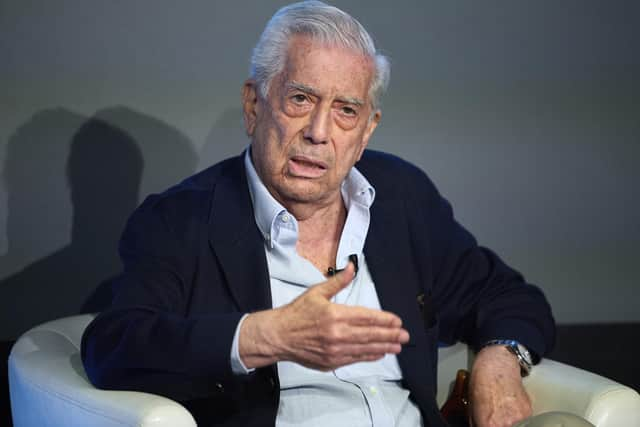Book review: The Call of the Tribe: Essays, by Mario Vargas Llosa
As a young man, the Peruvian writer Mario Vargas Llosa was on the Left, an enthusiast for the Cuban revolution. It seemed to promise democracy in Latin America. It was “an ideological watershed." He saw Fidel Castro’s achievement as “a heroic and generous adventure”. It promised “a non-sectarian socialism that would allow for criticism, diversity, and even dissidence.” The promise was never fulfilled. Experience and observation caused him to change his mind. He became an advocate for liberal democracy, the rule of law and a free press. Capitalism could offer what socialism promised but failed to deliver. He came to believe that “a minimal state is generally more efficient than a large one.” He has held to this belief for more than half a century now. His book is a collection of essays on writers who have helped to form – or reform – his mind. It is evidence of his wide and intelligent reading. It begins, naturally, with Adam Smith, treated, correctly, as a philosopher rather than an economist. The Theory of Moral Sentiments is at least as important as The Wealth of Nations. For Smith, “civilization is born from the need of human beings to turn to others to satisfy their needs.”
Smith is familiar to us as Scots, the Enlightenment of which he was one of the brightest lights the glorious age of our national history. We are likely to be less familiar with the subjects of Vargas Llosa’s other essays, the Spanish liberal philosopher Jose Ortega y Gasset, for instance. He was “a free thinker, an atheist (or at least an agnostic) a civilist, a cosmopolitan, a European, an opponent of nationalism and of all ideological dogmatism, his favourite word was radical”.
Advertisement
Hide AdThe third essay is on Friedrich von Hayek, the greatest advocate of the Free Market, claimed by Margaret Thatcher as her greatest influence. “This is what we believe” she would say, brandishing his most famous book, The Roots of Serfdom. This will not of course commend Hayek to a great many Scots, but it is worth noting that he was fiercely critical of the form of capitalism we call Mercantilism – "the mafioso alliances between political power and influential leaders.”


The subject of the longest essay is Karl Popper, author of The Open Society and its Enemies. It was published in 1945 when Popper, a Jewish refugee from Nazi Germany, was teaching in a New Zealand university. Popper is, I think, Vargas Llosa’s especial hero. I read the book a long time ago and was deeply impressed by it. I doubt if I could tackle it again. In later life Popper argued that “democracy will not survive if it does not place effective controls on television and the power it exerts on shaping our cultural and moral environment.” Lord knows what he would have to say about the internet.
The next subject is Isaiah Berlin, childhood refugee from the Russian Revolution who became a pillar of the British Establishment and wrote acutely about historians and political philosophy. He was a friend of Popper though they differed on the subject of Israel, Berlin being a Zionist (though a liberal one) while Popper thought the creation of the state of Israel was a mistake. Berlin’s most important insight was his “theory of contradictory truths”, something that we experience without naming it, in everyday individual life as much as in politics and history.
The last two essays are on the French philosophers and journalists Raymond Aron and Jean-Francois Revel, both very intelligent, Aron very sympathetic, Revel less so and more belligerent. Well, considering the nonsense talked and written by many star French intellectuals in the second half of the 20th century, Revel’s truculent and aggressive journalism was as welcome as it was usually sensible.
This is an admirable, enjoyable and stimulating book. I learned a lot from it. University departments of History, Philosophy, Politics and Economics should put it on their students’ reading lists, with or without fashionable trigger warnings. I bet they don’t. But I trust any young people with eager and enterprising minds will seek it out. They will be well rewarded, even if some of their cherished assumptions get a few knocks.
The Call of the Tribe: Essays, by Mario Vargas Llosa, Faber & Faber, 276pp, £18.99